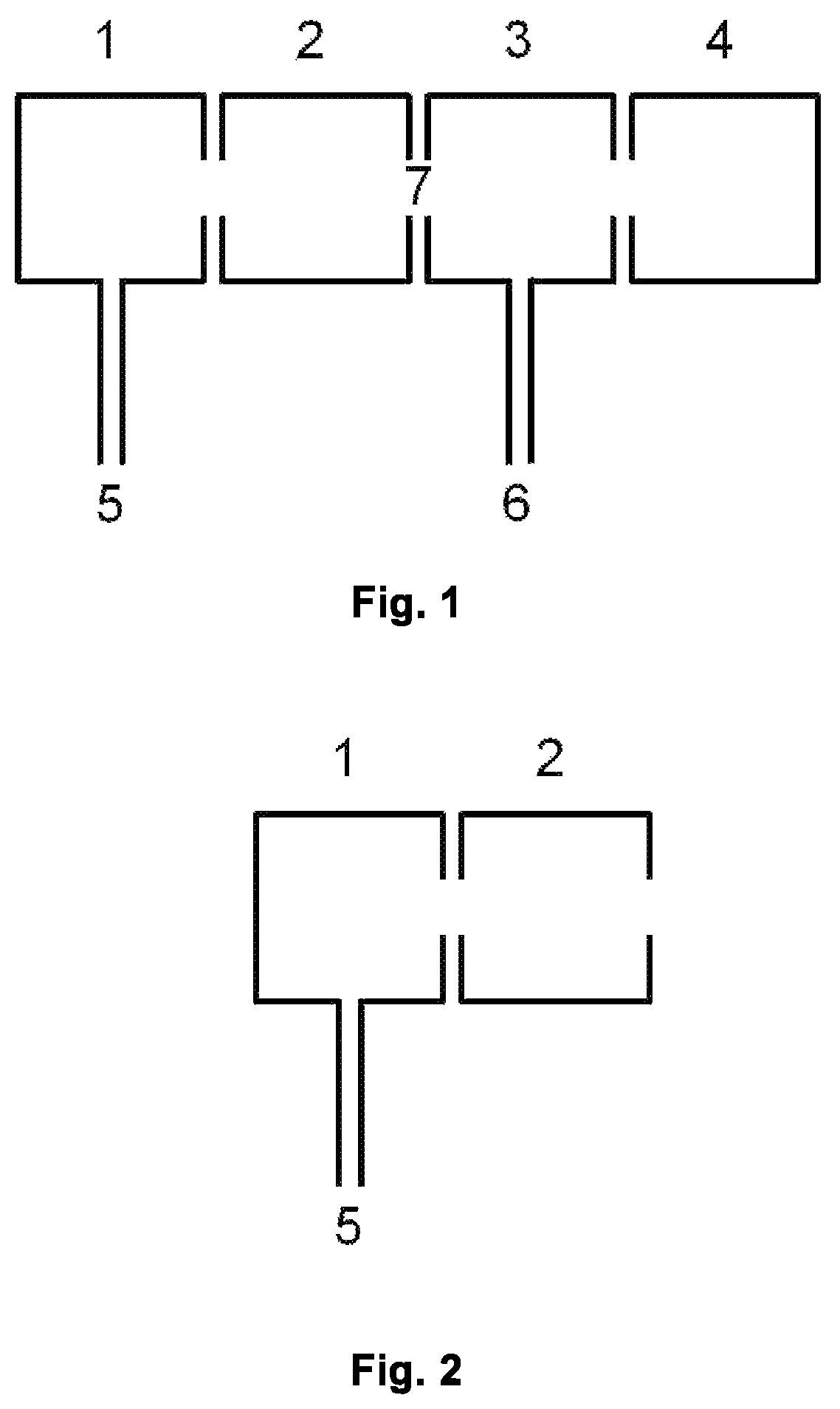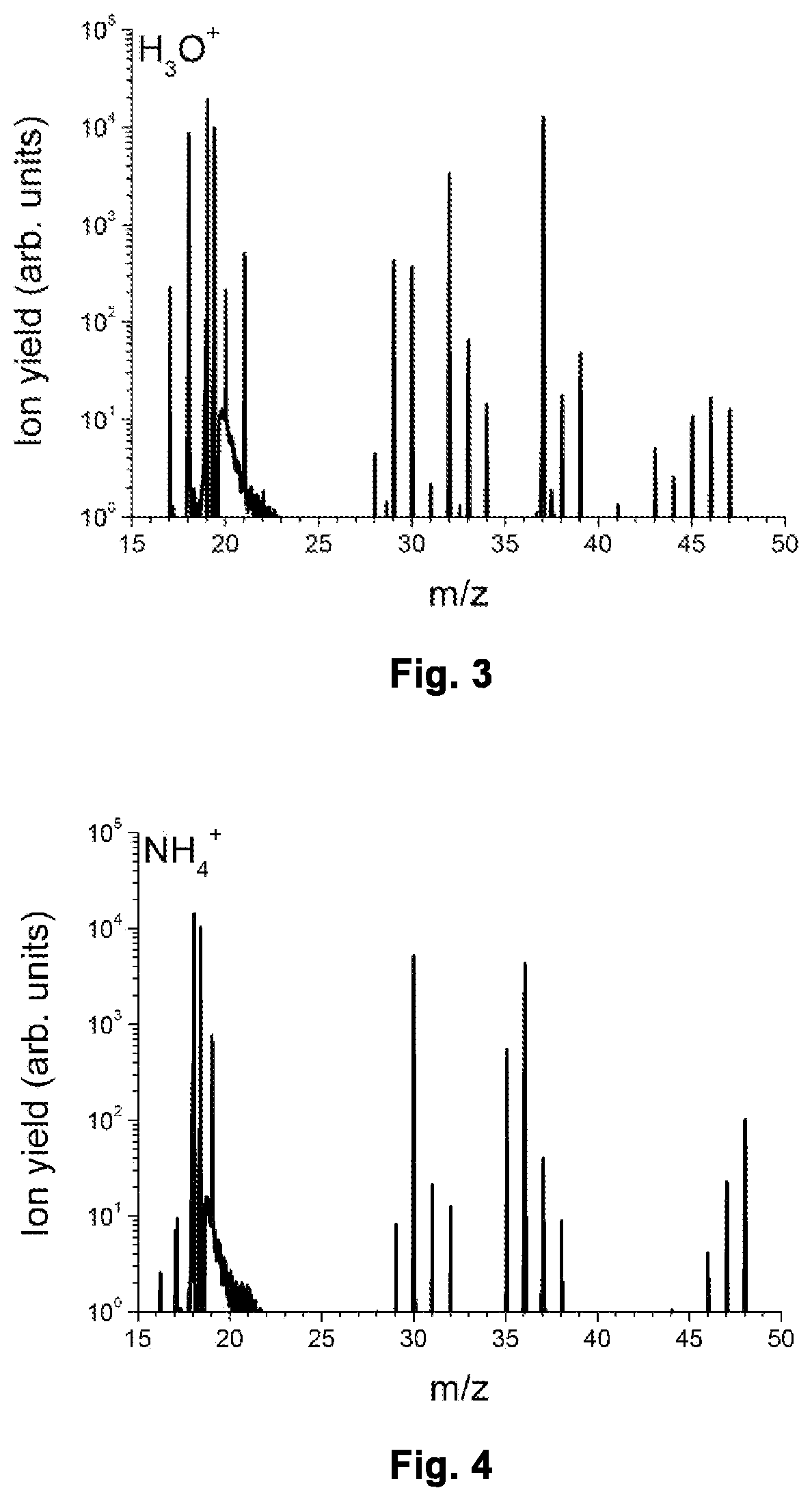Method for producing gaseous ammonium for ion-molecule-reaction mass spectrometry
a technology of ion-molecule reaction and ammonium, which is applied in the direction of electric discharge tubes, particle separator tubes, particle separator tube details, etc., can solve the problems of higher fragmentation, more complex mass spectra, and low selectivity, and achieve the effect of easy flow control of ions and/or neutrals and easy second ionization chambers
- Summary
- Abstract
- Description
- Claims
- Application Information
AI Technical Summary
Benefits of technology
Problems solved by technology
Method used
Image
Examples
Embodiment Construction
[0063]FIG. 1 is a schematic view of a typical IMR-MS instrument, comprising a first ionization chamber 1, a second ionization chamber 2, a reaction region 3 (e.g. drift, flow or flow-drift tube in PTR-, SIFT- and SIFDT-MS, respectively), a mass spectrometer region 4 (e.g. TOF, multipole, ion trap, MSn, etc.), one or more inlet(s) 5 for source gases, one or more inlet(s) 6 for sample and, if needed, carrier or buffer gas, region 7 between 2 and 3.
[0064]FIG. 2 shows a schematic view of the parts needed for the present invention: first ionization chamber 1, second ionization chamber 2, one or more inlet(s) 5 for source gases.
[0065]FIG. 3 shows a part of a mass spectrum obtained with the instrument running in H3O+ mode.
[0066]FIG. 4 shows a part of a mass spectrum obtained with the instrument running in NH4+ mode, i.e. in the mode according to the invention.
[0067]The present invention solves all of the above-mentioned problems associated with the use of NH3 source gas and enables the gen...
PUM
 Login to View More
Login to View More Abstract
Description
Claims
Application Information
 Login to View More
Login to View More - R&D
- Intellectual Property
- Life Sciences
- Materials
- Tech Scout
- Unparalleled Data Quality
- Higher Quality Content
- 60% Fewer Hallucinations
Browse by: Latest US Patents, China's latest patents, Technical Efficacy Thesaurus, Application Domain, Technology Topic, Popular Technical Reports.
© 2025 PatSnap. All rights reserved.Legal|Privacy policy|Modern Slavery Act Transparency Statement|Sitemap|About US| Contact US: help@patsnap.com


